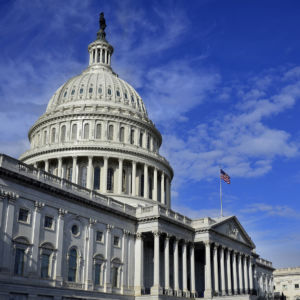The National Black Chamber of Commerce released a memo Wednesday arguing the border adjustment tax could help African American business owners.
Congressional Republicans drafted a blueprint last year with the goal of overhauling the tax code. It’s designed to lower rates and simplify the tax code. It also includes a border adjustment tax. The National Black Chamber of Commerce praised the blueprint for its potential impact on businesses.
“African American small businesses and workers across the country will reap the benefits of this tax reform plan,” the memo detailed. “The proposed blueprint’s border adjustment provision will also level the playing field for African American-owned businesses, allowing for more job creation and investment back into our communities.”
The border adjustment tax is a value added tax levied on imported goods. The tax is essentially applied when a product is produced in a foreign country but sold in America. The chamber notes the border adjustment tax will help black business owners by increasing domestic investment and job creation.
“Those analyses have also concluded that border adjustment would strengthen the dollar, having the effect of lowering the cost of imports,” the memo said. “That is important because it means that the cost to consumers would not increase.”
The border adjustment tax is also viewed by some as a more efficient system. This is the result of most countries having a value added tax on consumption and the U.S. having a high corporate rate. Companies are currently taxed on their worldwide profits at 35 percent.
“Pro-growth aspects of the House blueprint include the lowering tax rates for all businesses, immediate expensing, and cuts in other taxes on small businesses,” the memo said. “The border adjustment provision is the mechanism for these three initiatives of the tax reform package that are favored by all, offsetting the costs of these provisions.”
The chamber adds it would have to rethink the entire blueprint if the border adjustment was not included. The border adjustment tax still has plenty of critics. Those opposed are primarily concerned that the added tax will cause consumer prices to increase.
The border adjustment tax portion has become one of the more controversial parts of the blueprint. Americans for Prosperity (AFP), for instance, supports the blueprint generally, but adamantly opposes the border adjustment tax. The AFP considers its opposition to the border adjustment tax to be a top priority.
Supporters contest the border adjustment tax will not result in increased prices. They note the tax increase on imported goods will be offset by the overall $2.4 trillion tax cut. Companies that primarily export and produce locally have a lot to gain.
House Speaker Paul Ryan and Rep. Kevin Brady introduced the blueprint last year. It has not yet been written into legislation so the actual details are unclear. The tax code hasn’t been overhauled or updated in any significant way since the 1980s.
The chamber also praises lawmakers for looking at regulatory reform and infrastructure investment. It believes those too will help small business owners and the general economy. Republicans have looked to infrastructure investments as a potential way to stimulate job creation.

